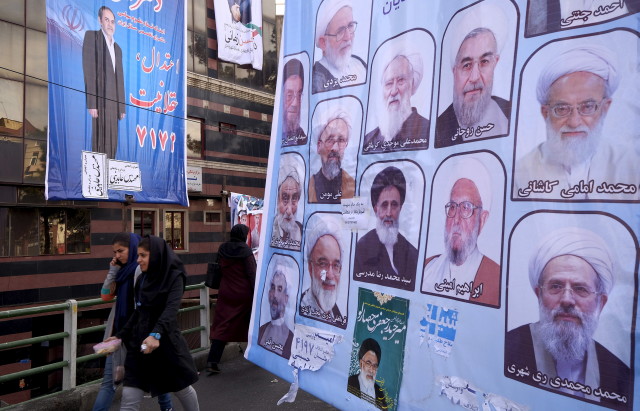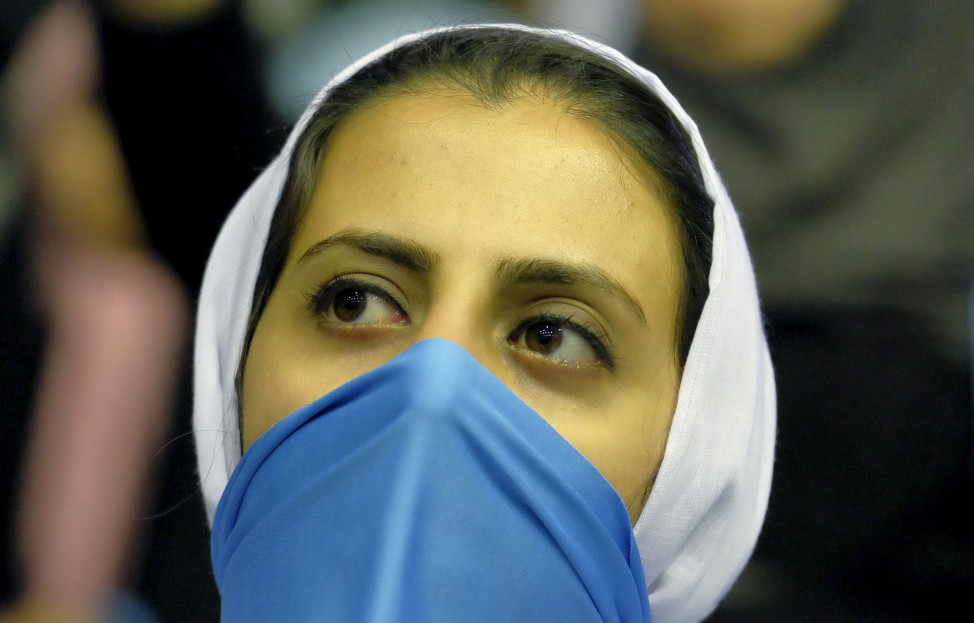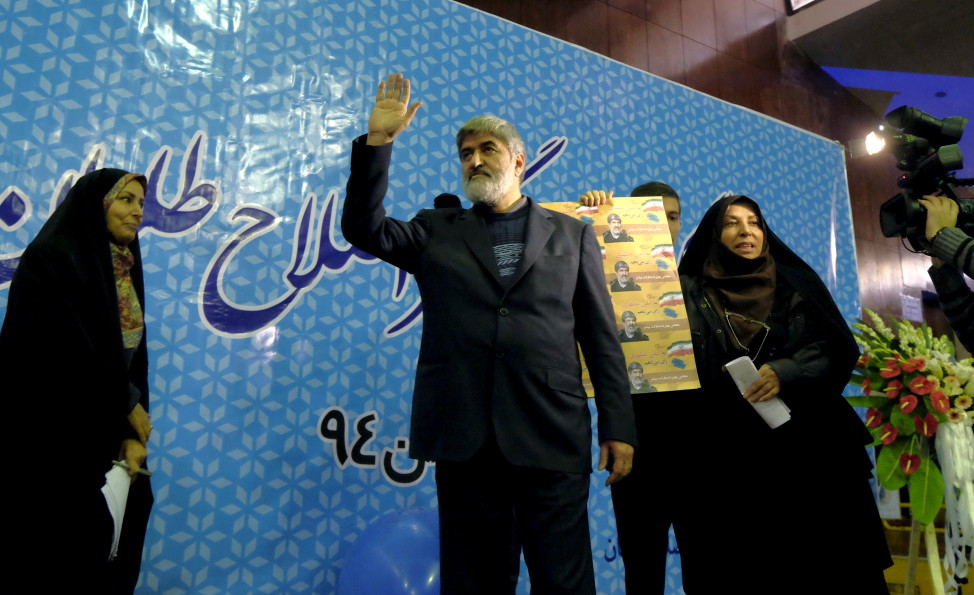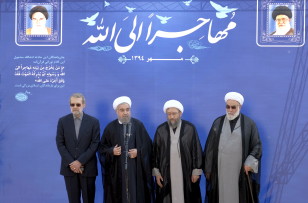When President Barack Obama announced the lifting of some of the most punishing sanctions against Iran last month, a tectonic shift took place. It felt like a Nixon to China moment.

Women walk past electoral posters for the upcoming elections in central Tehran Feb. 24, 2016. REUTERS
Iran, which the International Atomic Energy Agency (IAEA) had declared was in compliance with the landmark nuclear deal, was now no longer America’s mortal enemy. The Iran of the 1980’s hostage crisis seemed born again by signaling it was ready to cast off its pariah status and join the rest of the civilized world.
Or is it?
The West hopes Friday’s parliamentary elections in Iran will confirm that hope, but insiders have already thrown cold water on that idea. Not much is likely to change, they say, as long as religious clerics remain in charge of the entire electoral process. Harsh critics of Obama’s legacy moment with Iran will be also be watching to see if reform has really taken hold in Iran.
Iranian Election Truths and Myths
Ray Takeyh – Council on Foreign Relations
The dichotomy often made by foreign observers of an Iranian polity divided between hard-liners and reformers is an oversimplification. Rouhani has never been part of the reform faction as the term is properly understood in its Iranian context.
The reform movement evolved in the early 1990s by calling for accountability and pluralism. The descendants of that movement were the participants in the Green Revolution of 2009, which was brutally repressed with Rouhani’s blessing (he served in the Supreme National Security Council at the time).
Since the purges of 2009, Iranian politics have been reduced to a coalition of hard-liners and centrists who agree far more than they disagree…. The most stark dichotomy in Iran today is not between hard-liners and moderates, but rather, between the state and society.

An Iranian woman attends a rally for a reformist candidate in upcoming parliamentary elections in Tehran on Feb. 18, 2016. (Reuters)
Iran Vote Shows Deal’s False Hopes
Jonathan S. Tobin – Commentary
There are plenty of Iranians who would like some kind of reform of a society that is tightly controlled by a repressive government. They will grasp at any straws offered by the regime such as the chance to elect an alleged moderate to the presidency like Rouhani even though they know the office has little power.
They’ll also hope that some moderates will somehow make it into the parliament. But they also know that the Islamists maintain a monopoly on political power. Moreover, they are also painfully aware that the ayatollahs and their violent henchmen will meet any real challenges to it — as opposed to the fake ones on display in the election — with the same brutality they meted out to protesters in the streets of Iran in 2009.
But that still doesn’t stop the Obama administration or its media cheerleaders from pretending that Iran is morphing into a reasonable partner for the West. To the contrary, everything that has happened since the nuclear deal was put in place confirms the suspicions of the critics that warned that Khamenei — the one man with the real power — has no intention of moderating its foreign policy any more than of loosening the Islamist grip on Iranian society.
Watch: Obama’s Remarks on Iran Nuclear Deal
Iran’s Elections: A Test of Obama’s Nuclear Deal
J. Matthew McInnis – CNN
One of Obama’s responses to critics who said the United States gave up too much to achieve the Iranian nuclear deal was that it could allow Iran to “fully rejoin the community of nations.” But will it? If projections for Iranian national elections are any indication, the answer may be no….
Iranian President Hassan Rouhani (2nd L) speaks as parliament speaker Ali Larijani ( L), Judiciary Chief Ayatollah Sadeq Larijani (2nd R), and the chief of the supreme leader’s office Mohammad Golpayegani attend a ceremony in Tehran on Oct. 3, 2015. (Reuters)
The problems start with the fact that the regime disqualified roughly half of the candidates who applied to run in the parliamentary elections, and reformist candidates were strongly represented among the disqualifications.
The resulting Parliament could be just as conservative as the current one, and certainly no more amenable to President Hassan Rouhani‘s vision for an Iranian economy more open to the rest of the world.
Nuclear Deal Colors 2016 Election — In Iran
James Conca – Forbes
Iran is probably the strangest combination of a democracy and an oligarchy that the world has ever seen. The democratically-elected President is Hassan Rouhani, a moderate who is supported by a majority of the people of Iran….
However, Rouhani has to constantly maneuver around his conservative opponents, the theocrats led by the Supreme Leader Ayatollah Ali Khamenei, who control the army, the Guardian Council and comprise the real power base of the country….
Through this nuclear agreement, President Rouhani demonstrated to the people and the theocrats of Iran that he could successfully deal with the West. In fact, the nuclear deal is the best weapon Rouhani has against the hardliners who want to continue the fight against the West and keep the region embroiled in conflict. Fortunately, we only have to wait two weeks for these election results.

Iranian lawmaker Ali Motahari waves to supporters in Tehran during a rally for parliamentary elections on Feb. 18, 2016. (Reuters)


